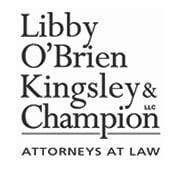The best way to save income tax is to contribute the maximum allowable amount to your employer’s retirement program. Check with your plan administrator before year end to see if you are eligible to make contributions prior to the end of the year. If you do not have an employer program, you may be eligible to contribute to an IRA. If you are 50 or older, be sure to take advantage of the additional allowed catch-up contributions, too.
TAX SAVING CONTRIBUTION LIMITS:
401(k) and 403(b): The contribution limit for employees who participate in 401(k) or 403(b) plans is $18,000 this year and will remain unchanged for 2016. The catch-up contribution for employees who are age 50 and over who participate in 401(k) and 403(b) plans is $6,000 for both 2015 and 2016.
SIMPLE IRA: The amount an employee can contribute to a SIMPLE IRA cannot exceed $12,500. The catch-up contribution for participants who are age 50 or over is $3,000.
HEALTH SAVINGS ACCOUNTS (HSA): The annual limitation on deduction for an individual with self-only coverage under a high deductible health plan is $3,350. For an individual with family coverage the limit in 2016 is $6,750, a $100 increase over 2015. If the employer funds a portion of the HSA, the employee can contribute the difference between the employer contribution and the applicable maximum.
IRA: The limit on annual contributions to an IRA is $5,500. The additional catch-up contribution limit for individuals aged 50 and over is not subject to an annual cost-of-living adjustment and remains $1,000.
SOCIAL SECURITY:
NO COLA: Those receiving monthly Social Security and Supplemental Security Income benefits have recently been notified that they will not automatically receive an increase in 2016. We are told that is because there was no increase in the Consumer Price Index from the third quarter of 2014 to the third quarter of 2015.
Maximum Taxable Earnings for the 6.2% Social Security payroll tax deduction in 2016 will be $118,500, unchanged from 2015. There is no earnings limit for the 1.45% Medicare payroll deduction tax. Individuals with earned income of more than $200,000 ($250,000 for married couples filing jointly) pay an addition 0.9% in Medicare taxes.
The Maximum Social Security Benefits for a worker retiring at Full Retirement Age is REDUCED from $2,663/month in 2015 to $2,639/month in 2016. A decrease in full maximum benefits occurs when as this year there is no COLA, but there is an increase in the national average wage index. It’s hard to believe but that is what the Official Social Security Website says in its Fact Sheet entitled 2016 Social Security Changes.
ESTATE AND GIFT TAX EXEMPTION AMOUNTS:
TAX FREE GIFTS: The annual exclusion for gifts is $14,000 for 2015 and 2016.
FEDERAL ESTATE TAX: Estates of decedents who die during 2016 have a basic exclusion amount of $5,450,000, up from a total of $5,430,000 for estates of decedents who died in 2015.
MAINE ESTATE TAX: For estates of decedents who died 2015, Maine imposes a tax on the value of the Maine taxable estate, even if there is no federal estate tax liability. The exclusion amount is limited to $2 million. For estates greater than $2 million, the tax is equal to 8% between $2 and $5 million; 10% of the excess over $5 million to $8 million; and 12% of the amount over $8 million.
A major change in Maine is that for decedents dying on or after January 1, 2016, the Maine exclusion amount is indexed to the federal exclusion amount and the tax rate schedule is amended so as to apply to the taxable estate in excess of the applicable federal exclusion amount. Therefore, there will be no Maine estate tax for decedents dying in 2016 with estates of less than $5,450,000.
MASSACHUSETTS ESTATE TAX: Massachusetts continues to tax all estates that exceed $1 million.
The attorneys in the Wills, Trusts and Estates practice group at Libby O’Brien Kingsley & Champion, LLC focus on providing responsive, individualized representation to individuals, families and fiduciaries in the areas of wealth estate planning, including the creation and administration of various trusts; settlement and administration of estates; preparation and filing of estate tax returns; probate guardianship and estate litigation; business succession planning; and charitable giving.
